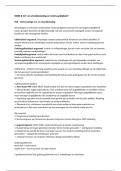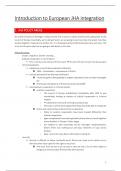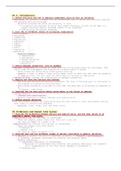Summary
Samenvatting : Filosofie van Mens en Maatschappij (Tentamen)
- Course
- Institution
Dit is een samenvatting voor het vak: Filosofie van Mens en Maatschappij. Het behandelt de hoorcolleges en opgegeven literatuur die behoren tot de leerstof voor het tentamen. Taal is Nederlands voor de hoorcolleges en Engels voor de literatuur om geen interpretatie fouten te maken in eventuel...
[Show more]







